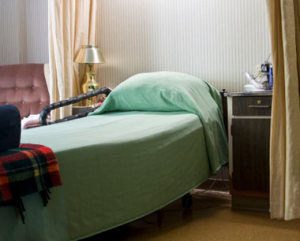Back in 2013, a number of elderly residents in a Castro Valley facility were abandoned, “left without proper staffing or care for two days,” according to a recent article in the San Jose Mercury News. Now, the owner and administrator from the facility, Valley Springs Manor, “have been charged with felony elder abuse and could face up to 17 years in prison if convicted.”
Indictment for Felony Elder Abuse
Who can be held liable for the serious allegations concerning nursing home abuse in Castro Valley? Based on an announcement from California Attorney General Kamala Harris, both the owner of Valley Springs Manor, Herminigilda Manuel, as well as a top administrator, Edgar Babael, have been indicted on 14 felony counts of elder abuse. Manuel was arrested by agents from the Department of Homeland Security at San Francisco International Airport, and a warrant has been issued for the arrest of Babel.
 Southern California Nursing Home Abuse Lawyer Blog
Southern California Nursing Home Abuse Lawyer Blog
















